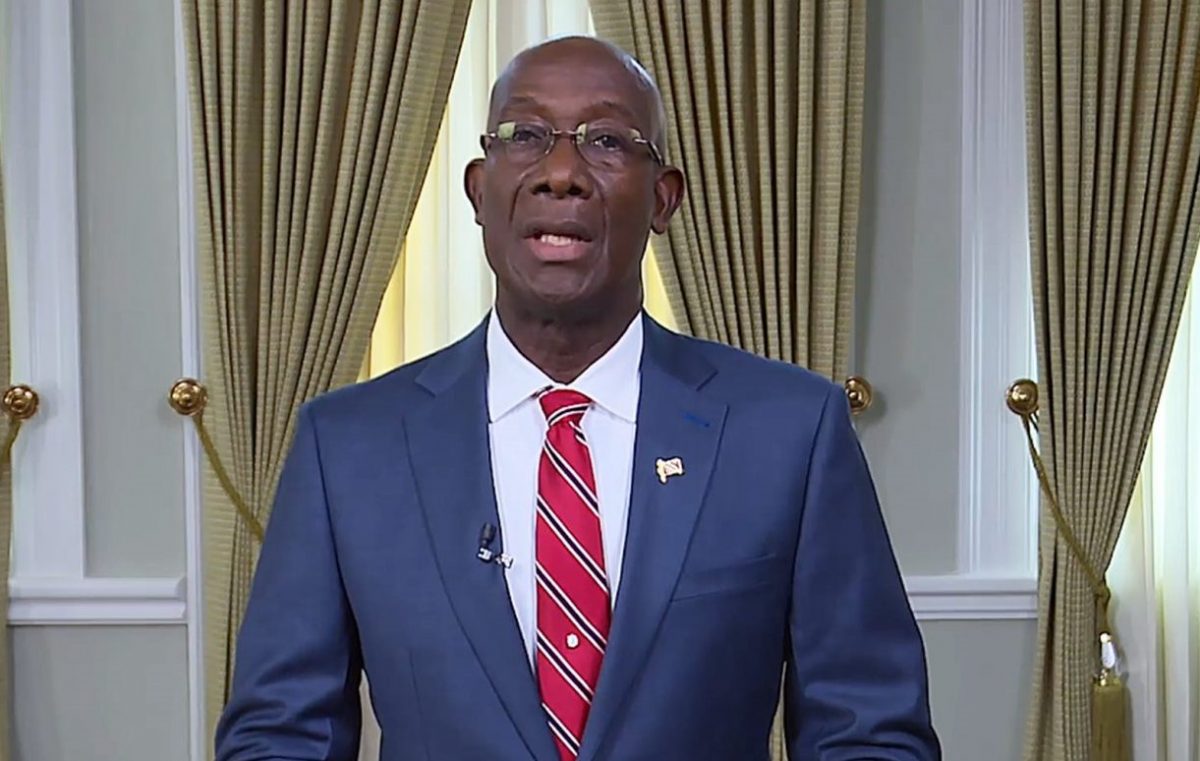(Trinidad Express) The University of the West Indies (The UWI) has fallen away from its mission in scientific research, says Prime Minister Dr Keith Rowley.
There are still hundreds of areas of stimulating research to be explored and published, and such publications and edification stimulated by collection and analysis of data in every field can do wonders for decision-making at every level of the society, from Government to small entrepreneurs, he said.
Those fields range from construction to diet, from land use to pollution levels and even from aging to introduction of species, the Prime Minister said.
“A university that has its pedigree in the great work done in research as the Imperial College of Tropical Agriculture cannot be satisfied with professional or senior staff CVs dominated by columns, inches of questionable opinionated expressions in the local daily or Sunday papers,” he said.
The Prime Minister was speaking on Wednesday night at the Daaga Auditorium of The UWI’s St Augustine campus, in commemoration of the university’s 75th anniversary and the 70th anniversary of its Seismic Research Centre (SRC).
At the function, Rowley was also honoured by the SRC as the first Caribbean-born scientist to be appointed as head of the centre.
In the 1970s, he was a supervisor at the SRC before moving on to become the first UWI-trained geology masters graduate in the Caribbean region and then its first PhD in the subject. He later went on to serve as director from 1989 to 1991.
Among those present at the function were his wife, Sharon Rowley; President of the Senate Nigel de Freitas; Minister of Education Dr Nyan Gadsby-Dolly; Minister in the Ministry of Education Lisa Morris-Julian; Minister of National Security Fitzgerald Hinds; Minister of Social Development and Family Services Donna Cox; Pro Vice-Chancellor and principal of the St Augustine campus Prof Rose-Marie Belle Antoine; and Chancellor of The UWI Robert Bermudez.
A long way to go
In his feature address, while Rowley praised the university for the strides it had made in seismology, he said there was still a long way to go in other fields.
“Universities in small island states have, in large measure, been influenced by the ‘publish or perish’ model. In seeking to develop and be recognised as on par with prestigious international institutions, they completely abdicate responsibility for assessing the merit of home-grown, possibly controversial, research to the formal peer-review system.
“Here again, the lessons from history are not applied. Often, the revolutionary idea that turned out to be closer to truth did not come from those in the mainstream of conventional wisdom. The old adage warns that we should not ‘put all our eggs in one basket’.
“Covid-19 reminded us of that! There is no reason for us to follow slavishly in the steps of established institutions. Certainly, we can learn from them, but we can add other dimensions to the model as we take advantage of the diversity in available brainpower,” he said.
In spite of this, the Prime Minister said The UWI was a legacy not only to be cherished but to be nourished by every student who enters and claim the university as alma mater.
“It also should be a beacon and an imprimatur for every lecturer and researcher in every single department, with a motto that says ‘Oriens Occidente,’ that light shining in the west. We are all rays in that great beam. Let us all endeavour to keep shining,” he said.
The Prime Minister went on to add that the history of the SRC is rooted in applied science, with its function being to provide a seismological and volcanological service to the English-speaking Eastern Caribbean. And this is to be done by keeping governments advised about all matters relating to seismic and volcanic hazards.
“In that regard, for decades, the SRC has practised operational volcano and earthquake forecasting using both conventional strategies and techniques developed in-house,” he said.
He said that up to a few years ago, in some parts of the industrialised world, how exactly this might be done was still being discussed.
Rowley also recalled and spoke of some past events in the Caribbean when there was widespread devastation, including the loss of thousands of lives from erupting volcanoes.
“We the geologists and seismologists still believe in that age-old principle of uniformitarianism, which in layman language means that whatever is observed or interpreted to have happened in nature is not only possible but very likely to happen again. The big unknown is always ‘when’.
“If you accept that, then it follows that with each passing day, we are one day nearer to the occurrence of the next event. It also follows, therefore, that the further back since the last event, the nearer we are to the next event,” he said.







